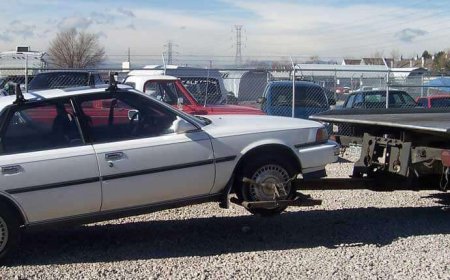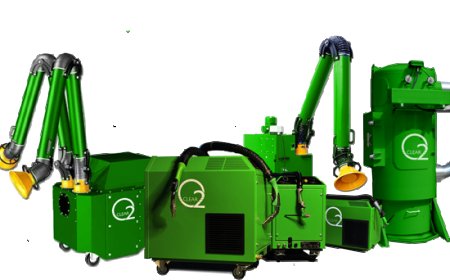Will the Wrong Oil Damage Your Engine? (Critical Warning Signs)

Choosing the right engine oil is crucial for maintaining your vehicles performance and longevity. Using the wrong oil can lead to severe engine damage, increased wear and tear, and even costly repairs. In this blog post, well explore how the wrong oil can harm your engine, the critical warning signs to watch for, and why selecting a high-quality lubricant likeNescol Lubricantsensures optimal engine protection.
How the Wrong Oil Can Damage Your Engine
Engine oil plays several vital roles, including:
-
Lubrication Reducing friction between moving parts.
-
Cooling Helping to dissipate heat.
-
Cleaning Preventing sludge and deposit buildup.
-
Protection Shielding against corrosion and wear.
When the wrong oil is used, these functions are compromised, leading to potential engine failure. Heres how:
1. Increased Friction and Wear
Using oil with the wrong viscosity (too thick or too thin) can fail to properly lubricate engine components.
-
Too thick (high viscosity) Oil wont flow efficiently, causing increased friction and overheating.
-
Too thin (low viscosity) Oil film breaks down, leading to metal-on-metal contact and accelerated wear.
2. Sludge and Deposit Buildup
Low-quality or incorrect oil formulations can leave behind harmful deposits. Over time, sludge accumulates, clogging oil passages and reducing lubrication efficiency.
3. Overheating and Engine Stress
Inadequate lubrication increases internal temperatures, causing:
-
Warped engine components.
-
Blown head gaskets.
-
Premature engine failure.
4. Poor Cold-Weather Performance
If the oil doesnt meet winter viscosity requirements (e.g., SAE 5W-30 vs. 10W-40), it may not flow properly in cold starts, leaving critical parts unprotected.
5. Reduced Fuel Efficiency
Thicker oils than recommended increase drag, forcing the engine to work harder and burn more fuel.
Critical Warning Signs of Wrong Engine Oil
If you suspect the wrong oil was used, watch for these symptoms:
1. Unusual Engine Noises
-
Knocking or ticking sounds Indicates poor lubrication.
-
Loud valve train noise Suggests oil isnt reaching critical components.
2. Overheating Engine
-
Higher-than-normal temperature gauge readings.
-
Frequent coolant loss (due to excessive heat).
3. Oil Pressure Warning Light
-
Illuminated dashboard light signals poor oil circulation.
4. Dark, Dirty Oil (Quickly Turns Black)
-
Clean oil turns dark over time, but if it happens too fast, it may be contaminated or breaking down.
5. Excessive Exhaust Smoke
-
Blue smoke Burning oil due to poor lubrication.
-
Black smoke Oil degradation or wrong viscosity.
6. Poor Acceleration & Reduced Performance
-
Engine struggles due to increased internal resistance.
7. Oil Leaks
-
Wrong oil viscosity can cause seals to shrink or swell, leading to leaks.
How to Choose the Right Engine Oil
To avoid these issues, always use oil that meets your manufacturers specifications. Key factors include:
1. Viscosity Grade
Check your owners manual for the recommended SAE grade (e.g., 5W-30, 10W-40).
2. API & ACEA Ratings
Ensure the oil meets industry standards (e.g., API SN, ACEA A3/B4).
3. Synthetic vs. Conventional
-
Synthetic oils(likeNescol Lubricants) offer better protection, especially in extreme temperatures.
-
Conventional oilsmay be suitable for older engines but degrade faster.
4. Additive Packages
High-quality oils contain detergents, anti-wear agents, and antioxidants for enhanced protection.
What to Do If Youve Used the Wrong Oil
If you suspect incorrect oil was used:
-
Drain and replace it immediatelywith the right type.
-
Check for damage Listen for unusual noises or monitor performance.
-
Consult a mechanicif symptoms persist.
Why Choose Nescol Lubricants for Engine Protection?
Using a trusted brand likeNescol Lubricantsensures:
-
Optimal viscosity stabilityfor all driving conditions.
-
Advanced additivesto prevent sludge and deposits.
-
Superior wear protectionfor extended engine life.
-
Improved fuel efficiencywith reduced friction.
Final Thoughts
The wrong engine oil can cause irreversible damage, leading to costly repairs. By recognizing the warning signs early and using high-quality lubricants likeNescol Lubricants, you can keep your engine running smoothly for years. Always refer to your vehicles manual and choose oils that meet or exceed manufacturer specifications.
Protect your enginechoose the right oil today!




































